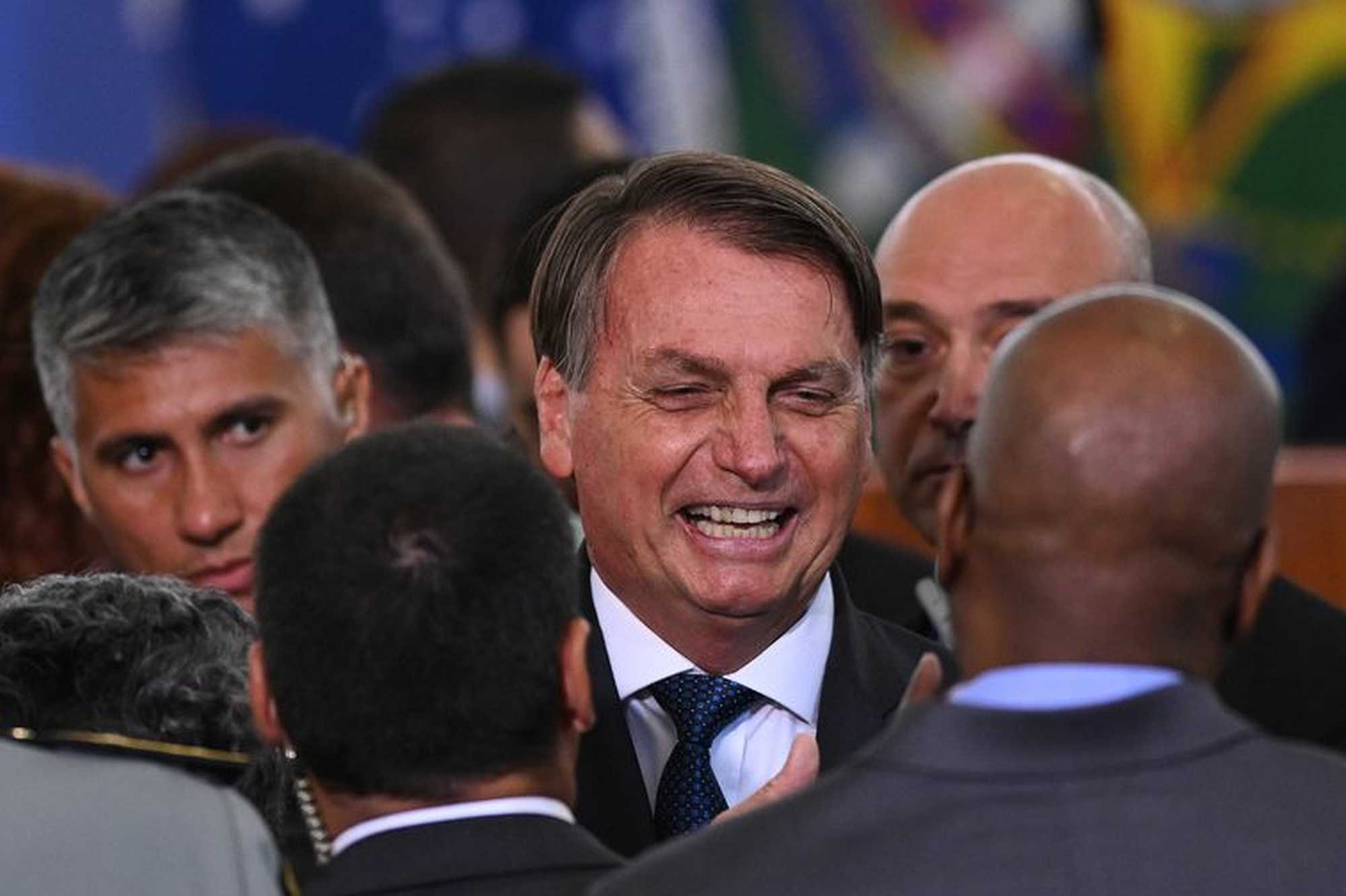The results of the recent municipal elections in Brazil were interpreted in distinct ways by the different actors involved. For some analysts, they clearly signaled a weakness of the 2018 far-right wave and of president Bolsonaro’s ability to successfully endorse candidates.
For others, they indicated a low-risk voting preference: the restricted campaign due to Covid-19 allegedly favored the re-election of mayors and city councilors as well as of candidates affiliated to well-established political parties.
Indeed, the strengthening of several right and center-right parties prompted some to assert the return of the ‘old politics’, or of politics proper, as opposed to the anti-political tendency of the last presidential election.
Yet others pointed out that the ‘old politics’ were always center stage, even if rebranded as anti-establishment. Analyses also emphasized the changing dynamics within the center-left and left parties, suggesting that the Workers’ Party (PT) is no longer the single most important player within the left, while highlighting the unprecedented number of LGBTQI+ candidates – a record number of which was elected.
Members and allies of the Brazilian government also received the results with mixed reactions: Filipe Martins, foreign policy advisor to the President, posted a long thread on Twitter in which he urged the ‘right’ – read, the government and its allies – to learn from its mistakes and engage in self-criticism.
Mostly addressing a self-denominated conservative public, he reminded them that the 2018 win was the result of a favorable sociopolitical conjuncture, gradually constructed since 2013. Re-uniting around a common goal, Martins continued, and having a party affiliation to build a meaningful and lasting relationship with voters are essential steps to re-election in 2022.
While Martins stressed the need for strategic internal re-appraisal, members of the government’s support base in the Congress, such as Bia Kicis and Carla Zambelli, were quick to raise suspicion about the legitimacy of the result, suggesting that it may be fraudulent.
President Bolsonaro’s reaction, on the other hand, was threefold: first, he declared a ‘historic defeat’ for the left; then, he minimized his role in the non-election of candidates he had endorsed; and, finally, he repeated the unfounded allegation that the electronic ballot boxes are not entirely reliable and called for the return of print ballots.
While ‘electoral denial’ is not a new item in Bolsonaro’s conspiracist arsenal, it has made a forceful comeback among far-right groups in Brazil since the US elections last November. This rather eclectic response is consistent with the Brazilian president’s more general tactic to present himself as either the winner over, or a victim of persecution by, powerful and sinister institutions and stakeholders, and hence never take responsibility over a loss, failure, or neglect.
Yet, while he doubled down on conspiracy theories and strived to illustrate victory, he also appeared to lend an ear – albeit more discreetly – to Martins – one of the government’s ideological hardliners, a proud disciple of writer Olavo de Carvalho, and an admirer of Steve Bannon.
Extrapolating results from the municipal to the presidential elections is a cautious exercise. People tend to prioritize different aspects of everyday life at the local and national levels and to vote accordingly.
In Brazil, municipal elections are usually read as a more or less accurate gauge of the electoral mood. That is, they are likely to give an indication of voting tendencies in the near future. At the institutional level, the fact that traditional Centrão parties will be now governing nearly half of the country’s municipalities makes them an even stronger player in the two houses of Congress.
Centrão, a cluster of self-serving right and center-right parties, is known for negotiating its support to any incumbent government – independently of the government’s political orientation – in exchange for strategic positions and financial gains.
Despite his vehement discourse against backroom deals and his vow not to negotiate with the rotten political establishment, Bolsonaro approached the Centrão when he felt threatened by a possible impeachment process in early 2020.
Just over a year in office, his administration engaged in the same practice he accused his predecessors of perpetuating while he repeatedly disavowed it in public. This approach, instead of inciting the fury of his supporters, was rather convincingly presented to the loyal bolsonarista base as a necessary evil that would allow the president to govern without significant opposition.
It was also seen rather positively by segments of the opposition. The latter assumed – or hoped – that the ‘infiltration’ of members of the traditional parties would de-extremise the government and curb the influence of its radical ‘ideological base’.
Two further events are set to increase and consolidate the coming together of the incumbent administration and members of the Centrão. The first is Bolsonaro’s need for a party affiliation. The president broke ranks with the Social Liberal Party (PSL) less than a year after his election in 2018 and has since remained independent.
His attempt to create his own party, Alliance for Brazil, has so far proven unsuccessful and it appears increasingly unlikely that it will be created in time for the 2022 presidential campaign. Indeed, Bolsonaro himself indicated that if Alliance is not created by March 2021, he will get affiliated to one of the existing parties.
The second event that paves the way for the consolidation of the synergy between the ‘anti-establishment’ government and Centrão, the establishment par excellence, is the succession of presidents of the Senate and the Chamber of Deputies in February 2021. It is no coincidence that Bolsonaro set the date for his new party affiliation after the two presidents are sworn in.
Both positions are of utmost importance. Both Speakers participate, for example, in the National Defense Council and in the Council of the Republic. But it is the Chamber of Deputies Speaker who decides, among other things, whether to consider or ignore an impeachment request against the President of the Republic.
The race for the succession has started and it is going to be a fierce one. The government is supporting the candidacy of Arthur Lira, known as leader of the Centrão in the lower house. The Chamber’s current Speaker, Rodrigo Maia, on the other hand, officially endorsed Baleia Rossi as his successor, presenting him as the candidate of a group of 11 parties that formed an opposition block to the government’s candidate.
While both candidates assert they would preside over the lower house in an independent fashion, many fear Arthur Lira’s close-knit relationship with the government and the Centrão will become further entangled and Bolsonaro will have greater chances of keeping the possibility of impeachment at bay.
There is a persistent misconception that Bolsonaro is a politician without a plan; a simple-minded, clownish and occasionally stern figure that will most likely self-destruct due to his utter incompetence to govern a country. This widespread misconception, however, may also be Bolsonaro’s greatest strength.
As philosopher Marcos Nobre has compellingly argued, Bolsonaro is neither dumb nor crazy: in his chaotic style lies precisely his method, and to dismiss Bolsonaro as incompetent or naïve is precisely to depoliticize him in his own anti-establishment terms and lend him the privilege of being criticized – or, worse still, being absolved of responsibility – as though he operated outside a framework of political rationality and accountability.
Instead, says Nobre, it is important to acknowledge that Bolsonaro operates within such a political framework – a rather atypical one, to be sure, but political nonetheless.
It is precisely this political framework, and plan to stay in power, that is often underestimated as amateurish and haphazard. Throughout his presidency, Bolsonaro has maintained the approval of about one third of the Brazilian population.
While fluctuation occurs, this one third has proven particularly resilient in its support of the president throughout the different periods of his time in office so far. This base, although by no means homogenous or uniform, is particularly attracted to Bolsonaro due to his non-conventional and often inflammatory ‘politically incorrect’ style.
As Nobre has suggested, Bolsonaro is really interested in keeping this base loyal, because with the approval of one third of the population he does not only shield himself against an impeachment process, but also guarantees good chances of reaching the second round in the next elections.
Hence, while some of the president’s ‘extreme’ or authoritarian moves continue to be seen as unsustainable in the long term, they are precisely what appear to make his 2022 candidacy viable. And Bolsonaro sustains the support of the one third by attending to their demands and, not infrequently, to their grievances.
Filipe Martins has described the government’s ‘ideological wing’ as the group that comprises the original and most loyal support base to Bolsonaro, one that remains true to the president’s proposals and values that garnered enthusiastic popular support in 2018.
Belonging to this group – together with such figures as the Minister of Foreign Affairs, Ernesto Araújo, and the former Minister of Education, Abraham Weintraub – Martins, with Bolsonaro, is defending the radical uprooting of all vestiges of the ‘leftist hegemony’ and a fierce fight against ‘globalism’.
Their crusade only partly overlaps with Bolsonaro’s populist rhetoric but it is essential for mobilizing (at least part of) the one third and hence also crucial for Bolsonaro’s authoritarian project.
If far-right populisms are often described as political projects that surreptitiously erode democracy from within, Steve Bannon has openly spoken about the ‘deconstruction of the administrative state’. The Brazilian government’s ‘ideological wing’ is envisioning a similar purge-and-rebirth process.
And while this may be imagined as a project of national exorcism, it fundamentally challenges the very existence of a democratic project in Brazil – whether liberal or illiberal. The country is slowly drifting towards an anti-democratic regime and stakeholders allying themselves with the government are contributing to this drift.
Unlike what is often thought to be the case, Bolsonaro is an openly authoritarian leader who has never hidden his admiration for the military dictatorship (1964-1985) – the only ‘true democracy’ in Brazil’s recent history – or his resentment for the 1988 ‘leftist’ Constitution.
When launching his candidacy for president, he side-lined his anti-democratic views and through key alliances with credible ‘guarantors’ of moderation, he won by a landslide. A notable example of this is the current Minister of the Economy, Paulo Guedes, who acted as the financial market’s guarantor in Bolsonaro’s future administration and conferred on him the support of voters more concerned with the government’s financial and economic policies.
Guedes had admitted, in an interview to Malu Gaspar a month before the 2018 elections, that he would ‘tame’ the ‘crude, coarse guy’. Nearly two years later, it looks as if Bolsonaro is the one who ‘tamed’ Guedes instead.
Those who saw Bolsonaro defeated in the 2020 Municipal Elections are likely to see his agreements with the Centrão as a bitter compromise – and it may well be. But it is not a compromise that undermines his government nor one that will eventually moderate it or steer it towards a democratic path.
As political scientist Flávia Biroli observed, the strengthening of Centrão parties in the municipal elections is likely to ultimately benefit Bolsonaro’s 2022 candidacy since they form the government’s support base in the two houses of Congress. If re-elected, the president will, in all likelihood, seek to consolidate his anti-democratic project.
Bolsonaro showed he never abandoned his authoritarian project when after participating in anti-constitutional protests that asked for military intervention and the closing of Congress and Supreme Court, he decided to go through with a coup d’état last May.
And it appears that he would have done so if he weren’t deterred by the Head of the Institutional Security Cabinet, retired Army General Augusto Heleno, who convinced him that ‘it was not the time for this’.
There is little doubt that the incumbent government in Brazil has no real commitment to liberal democracy. In light of this, it is urgent to turn our attention to those who compact an alliance with it and hence foster its political project.
For how long is the political establishment willing to turn a blind eye to Bolsonaro’s authoritarian plans? How far does Bolsonaro need to go in order to be considered a liability to democratic politics and not a prestigious partner? Or, to put it provocatively and schematically: Who is more threatening to Brazil’s democracy? Bolsonaro – an openly and unapologetically authoritarian politician-cum-populist leader or the Centrão – a party coalition always prioritizing financial gains and positions of power over political agendas?
Katerina Hatzikidi is a social anthropologist interested in questions of race and ethnicity, land rights, religious movements, populism, and conspiracy theories.
This article appeared originally in Open Democracy – https://www.opendemocracy.net/














